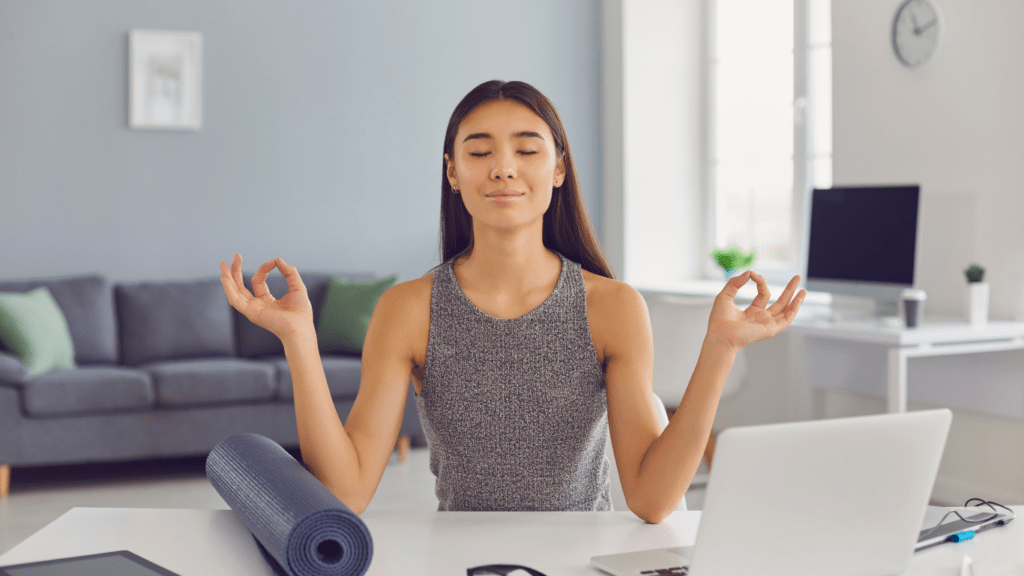Feeling overwhelmed by stress is a common experience in today’s fast-paced world. As I navigate through the challenges of daily life, I’ve discovered effective strategies that have helped me cultivate a sense of calm and balance. In this article, I’ll share top-notch techniques to help you master stress and lead a more peaceful life.
From mindfulness practices to time management tips, I’ve explored various approaches to combat stress and anxiety. By incorporating these strategies into my routine, I’ve witnessed a significant improvement in my overall well-being. Join me on this journey to discover practical tools that can empower you to navigate stress with confidence and resilience.
Understanding Stress
Stress is a common phenomenon experienced by many individuals in today’s fast-paced society. I’ve come to recognize that stress can manifest in various forms, whether it’s related to work, relationships, or personal expectations. Identifying the triggers of stress is crucial in addressing its impact on overall well-being. By understanding the root causes of stress, I’ve been able to develop effective strategies to manage and minimize its effects.
One key aspect of understanding stress is recognizing the physiological responses it elicits in the body. When faced with stressors, the body releases hormones such as cortisol and adrenaline, triggering the “fight or flight” response. This biological reaction can lead to heightened anxiety, restlessness, and even physical symptoms like headaches or muscle tension. Acknowledging these bodily reactions to stress has been instrumental in helping me implement targeted coping mechanisms.
Moreover, understanding the psychological effects of stress is equally essential. Chronic stress can take a toll on mental health, leading to symptoms like irritability, fatigue, and difficulty concentrating. Through self-reflection and awareness, I’ve learned to identify how stress impacts my mood and cognitive functions. This insight has empowered me to adopt preventive measures and engage in activities that promote relaxation and mental clarity.
In essence, grasping the multifaceted nature of stress allows me to approach its management comprehensively. By delving into the intricacies of stress triggers, physical manifestations, and psychological implications, I’ve cultivated a deeper understanding of this complex phenomenon. Armed with this knowledge, I’m better equipped to navigate challenging situations with resilience and a sense of control.
Top Strategies for Stress Management
Mindfulness and Meditation
Incorporating mindfulness and meditation practices into my daily routine has been transformative in managing stress effectively. Being present in the moment and practicing deep breathing exercises have helped me stay grounded and centered amid challenging situations.
Exercise and Physical Activity
Engaging in regular exercise and physical activities is crucial for relieving stress and boosting overall well-being. I’ve found that activities like jogging, yoga, or even a brisk walk in nature not only reduce stress levels but also enhance my mood and energy.
Healthy Eating Habits
Maintaining healthy eating habits plays a significant role in managing stress. Consuming a balanced diet rich in fruits, vegetables, and whole grains provides essential nutrients that support both physical and mental health. I’ve noticed a direct correlation between nutritious meals and my overall stress levels.
Effective Time Management
Practicing effective time management techniques has been instrumental in reducing my stress levels and increasing productivity. By prioritizing tasks, setting realistic goals, and delegating when necessary, I’ve been able to minimize feelings of overwhelm and maintain a sense of control over my schedule.
Incorporating Relaxation Techniques
Continuing from the strategies mentioned earlier, mastering stress involves incorporating relaxation techniques into your daily routine. It’s essential to take time for yourself and focus on activities that promote calmness and reduce tension. Here are some effective relaxation techniques to consider:
- Practicing deep breathing exercises: Deep breathing can help relax the body and mind, reducing stress and promoting a sense of well-being. It’s a simple yet powerful technique that can be done anytime, anywhere.
- Engaging in progressive muscle relaxation: This technique involves tensing and relaxing different muscle groups in the body to release physical tension and promote relaxation.
- Trying guided imagery or visualization: Guided imagery involves imagining peaceful scenes or experiences to create a sense of relaxation and mental escape from stressors.
- Incorporating aromatherapy: Certain scents like lavender, chamomile, or peppermint can have a calming effect on the mind and body. Using essential oils or scented candles can enhance relaxation.
- Listening to soothing music: Music has a unique ability to influence mood and emotions. Listening to calming music can help reduce stress and promote relaxation.
By incorporating these relaxation techniques into your daily routine, you can effectively manage stress, enhance your overall well-being, and cultivate a calmer and more balanced life.
Implementing Self-Care Practices
Continuing from the previous discussion on stress management strategies, I’ll share practical self-care practices that can help promote relaxation and reduce stress levels. Incorporating these techniques into your daily routine can have a significant impact on your overall well-being.
Embracing Deep Breathing Exercises
Deep breathing exercises are a simple yet powerful way to calm the mind and body. By focusing on slow, deep breaths, you can activate the body’s relaxation response, reducing anxiety and promoting a sense of peace.
Trying Progressive Muscle Relaxation
Progressive muscle relaxation involves tensing and then relaxing different muscle groups in the body, helping to release physical tension and stress. This practice can enhance body awareness and promote relaxation.
Engaging in Guided Imagery
Guided imagery involves visualizing peaceful and calming scenes to create a sense of relaxation and well-being. By immersing yourself in positive mental images, you can shift your focus away from stressors and promote a state of tranquility.
Exploring Aromatherapy
Aromatherapy harnesses the therapeutic properties of essential oils to promote relaxation and reduce stress. Scents like lavender, chamomile, and peppermint can have calming effects on the mind and body, helping you unwind and de-stress.
Incorporating Soothing Music
Music has the power to influence mood and create a calming atmosphere. Listening to soothing music, such as classical melodies or nature sounds, can help lower stress levels, promote relaxation, and enhance overall well-being.
By incorporating these self-care practices into your daily routine, you can cultivate a calmer, more balanced life and effectively manage stress. Prioritizing self-care is essential for maintaining mental and emotional wellness in today’s fast-paced world.




 Gracenie Stamperon
is a dedicated wellness enthusiast and content creator for My Healthy Living and Strategies, a platform focused on promoting holistic health, balanced living, and personal well-being. Gracenie’s passion for healthy living stems from her lifelong interest in nutrition, fitness, and mindfulness. With a background in health education, she brings a wealth of knowledge and practical strategies to help individuals achieve their wellness goals.
Gracenie Stamperon
is a dedicated wellness enthusiast and content creator for My Healthy Living and Strategies, a platform focused on promoting holistic health, balanced living, and personal well-being. Gracenie’s passion for healthy living stems from her lifelong interest in nutrition, fitness, and mindfulness. With a background in health education, she brings a wealth of knowledge and practical strategies to help individuals achieve their wellness goals.